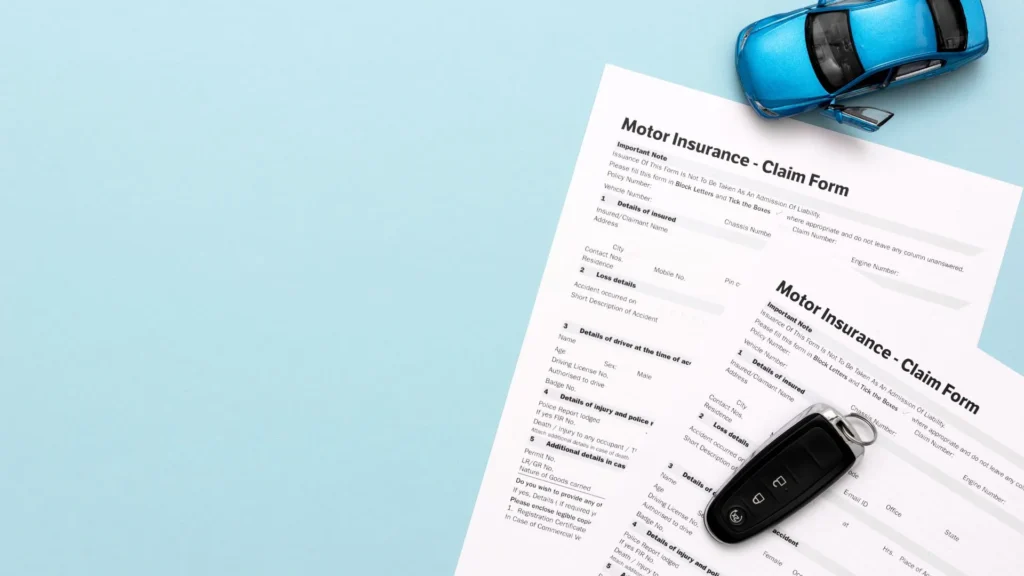Welcome to the multifaceted world of Georgia car insurance, where understanding the intricacies is critical to comprehensive coverage. Georgia residents face a unique landscape shaped by state regulations and diverse considerations.
From mandatory liability limits to optional coverages like comprehensive and collision, navigating the complexities of Peach State auto insurance demands attention to detail. In this blog, we journey through the nuances of car insurance in Georgia, unraveling the state-specific factors influencing coverage choices.
Whether it’s the minimum requirements set by the state or the optional add-ons that enhance protection, join us in exploring the vital aspects that contribute to a robust and tailored car insurance policy in the unpredictable realm of vehicle ownership in Georgia.
Why Gap Insurance in Georgia is Important?
In the picturesque landscapes of Georgia, the importance of Gap insurance becomes particularly pronounced. While standard insurance covers the cost of a stolen or totaled car, it may fall short if you owe more on your loan than the vehicle’s actual worth.
Gap insurance is a crucial safety net, bridging the financial disparity and sparing you from out-of-pocket expenses. This becomes especially pertinent if you’ve made a minimal down payment, have an extended loan term, or drive a vehicle prone to rapid depreciation.
In Georgia, where the unexpected can happen on the road, Gap insurance ensures your financial security.
Key Features of Gap Insurance
- Financial Safeguard: Covers the gap between the car’s value and the remaining loan amount.
- Savings Protection: Ideal when lacking savings to pay off the loan if the car is stolen or totaled.
- Down Payment Consideration: Valuable if your down payment is less than 20% of the car’s value.
- Extended Loan Terms: Particularly useful for loans lasting four years or more.
- High Mileage Coverage: Beneficial for those driving more than average, leading to faster depreciation.
- Vehicle Depreciation: This is especially recommended for cars with rapid depreciation rates, like luxury sedans or electric vehicles.
- Essential for Single-Car Households: Ensures access to a vehicle for daily commuting.
- Handling Negative Equity: Valuable if your loan includes negative equity from a previous car.
In a state where insurance regulations set the baseline, Gap Car insurance in Georgia emerges as a personalized layer of protection, aligning with individual circumstances and providing peace of mind on the diverse roads of the Peach State.
Overview of insurance regulations in Georgia
In the heart of the South, Georgia maintains a robust regulatory framework governing the insurance landscape. The state operates under a fault-based system, necessitating the at-fault party to cover damages in the event of an accident.
Georgia law mandates minimum liability coverage, requiring drivers to carry $25,000 for bodily injury per person, $50,000 for bodily injury per accident, and $25,000 for property damage. While these minimums provide a baseline, they may need to catch up in significant damage or loss scenarios.
Residents often find supplemental coverage like Gap insurance essential, especially when faced with the potential gap between the actual cash value paid by standard insurance and the outstanding loan amount.
Georgia’s insurance regulations foster an environment where drivers must navigate a complex landscape to ensure comprehensive coverage aligns with individual needs.
As residents explore options to safeguard their vehicles and financial interests, understanding the nuances of insurance laws becomes paramount.
Key Aspects of Insurance Regulations in Georgia:
- Fault-Based System: Georgia operates under a fault-based system, where the at-fault party covers damages.
- Minimum Liability Coverage: The state mandates minimum liability coverage, requiring drivers to carry specified amounts for bodily injury and property damage.
- Supplemental Coverage Considerations: Given the potential gaps in standard insurance, residents often opt for supplemental coverage like Gap insurance to bridge financial shortfalls in the event of a total loss.
- Individualized Coverage Needs: Georgia’s insurance regulations underscore the importance of tailoring coverage to individual circumstances, emphasizing the need for drivers to explore additional protections beyond the mandated minimums.
In the dynamic landscape of Georgia’s roads, understanding and navigating the intricacies of insurance regulations are pivotal to ensuring drivers are adequately protected.
The state’s legal framework provides a foundation. Still, the onus is on individuals to make informed choices that align with their unique needs and circumstances.
Benefits of Gap Insurance in Georgia
Gap insurance in Georgia offers invaluable advantages for vehicle owners, bridging financial disparities in the face of unexpected events. Explore the key benefits:
Financial Safeguard
Gap insurance is a crucial financial safety net, covering the difference between your vehicle’s actual cash value (ACV) and the remaining amount on your lease or loan. This ensures you won’t be left with out-of-pocket expenses in the event of a total loss.
Rapid Depreciation Coverage
Given the rapid depreciation of vehicles, standard auto policies may need to catch up in covering the outstanding loan or lease balance. Gap insurance bridges this gap, providing coverage that aligns with the decreasing value of your vehicle.
Protection for Low Down Payments
If your initial down payment was less than 20% of the car’s total price, the financial gap between the ACV and your loan balance becomes more pronounced. Gap insurance offers protection in such scenarios, preventing you from bearing the brunt of the difference.
Extended Financing Terms
Gap insurance is advisable for those planning to finance a vehicle for at least five years. As the loan term lengthens, the potential for a disparity between the vehicle’s value and the loan amount increases, making Gap coverage even more essential.
Depreciation-Prone Vehicles
Owners of vehicles that depreciate more rapidly than the average car can benefit significantly from Gap insurance. This ensures that the financial impact of a total loss is mitigated, regardless of the vehicle’s depreciation rate.
Negative Equity Coverage
Gap insurance provides added protection if you have negative equity from a previous loan rolled over into your current financing. It covers the shortfall between the ACV and the outstanding loan amount, preventing you from being burdened by past debts.
Lease Requirement Compliance
For individuals leasing vehicles, lenders often require the purchase of Gap insurance. This ensures that in the event of a total loss, the lessee is not responsible for covering the difference between the ACV and the remaining lease balance.
Guaranteed Asset Protection (GAP) Benefits
Gap insurance, often called Guaranteed Asset Protection, brings peace of mind by guaranteeing that you won’t continue owing for a vehicle you can no longer drive. It offers flexibility, covering various vehicle types. It is an affordable one-time premium paid in full or financed with your vehicle.
Additional Benefit – Auto Deductible Reimbursement
Gap insurance in Georgia may include an added benefit of a $1,000 Auto Deductible Reimbursement, providing extra financial relief in the event of a covered claim.
In a state where the unexpected can happen on the roads, Gap insurance emerges as a valuable asset, ensuring that vehicle owners have comprehensive coverage that aligns with their unique financial circumstances.
Coverage Criteria for Gap Insurance in Georgia
Navigating gap insurance in Georgia requires understanding specific criteria. Explore the coverage criteria essential for comprehensive protection in Georgia.
Financed or Leased Vehicles
Gap insurance applies to financed or leased vehicles. It addresses the financial gap between the vehicle’s actual cash value (ACV) and the remaining loan or lease balance.
Vehicle Age
Gap insurance typically covers brand-new vehicles and those up to one model year old. While it may not be restricted solely to new cars, it is crucial to ensure that your vehicle meets the age criteria specified by your insurer.
Loan with Negative Equity
Gap insurance becomes essential if your auto loan includes negative equity from a previous car. It covers the shortfall between the ACV and the outstanding loan amount, preventing you from shouldering the burden of past debts.
High Depreciation Vehicles
Vehicles with a rapid depreciation rate, such as luxury sedans or electric vehicles, are prime candidates for gap insurance coverage. This ensures that the financial impact of depreciation is mitigated in the event of a total loss.
Low Down Payment
If your down payment is less than 20% of the car’s total price, the financial gap between the ACV and the loan balance becomes more pronounced. Gap insurance protects you in such scenarios, preventing you from facing out-of-pocket expenses.
Extended Loan Terms
Gap insurance is particularly beneficial for individuals planning to finance a vehicle for an extended period, typically four years or more. As the loan term lengthens, the potential for a disparity between the vehicle’s value and the loan amount increases.
Lease Requirement Compliance
For those leasing vehicles, the lender may require gap insurance. It ensures that the lessee is not left responsible for covering the difference between the ACV and the remaining lease balance in case of a total loss.
Event of Total Loss
Gap insurance comes explicitly into play when there is a total loss of the vehicle, whether due to an accident, theft, fire, flood, or other covered events. It covers the financial gap between the insurance payout and the remaining loan or lease balance.
Understanding these coverage criteria is crucial for individuals considering gap insurance in Georgia, as it ensures that the policy aligns with their specific vehicle, financing, and insurance circumstances.
Also Read: Gap Insurance in Arkansas
Obtaining Gap Insurance in Georgia
Obtaining Gap insurance in Georgia is a straightforward process, typically accessible through various insurance providers. Here’s a step-by-step guide on securing Gap insurance for your vehicle:
Contact Your Auto Insurance Provider
Begin by contacting your current Auto insurance provider. Many companies offer Gap insurance as an add-on to your existing policy.
Explore Multiple Providers
To ensure you get the best coverage at a competitive rate, consider exploring Gap insurance options from multiple providers. Obtain quotes and compare the terms and conditions offered by different insurers.
Understand Coverage Terms
Familiarize yourself with the specific terms and conditions of the Gap insurance policies provided. Understand the coverage limits, eligibility criteria, and any exclusions that may apply.
Determine Coverage Needs
Assess your circumstances to determine the coverage you need. Consider factors such as the length of your loan or lease, vehicle type, and down payment amount.
Add Gap Insurance to Your Policy
Once you’ve chosen a Gap insurance provider, work with your insurance agent to add Gap coverage to your policy. This is typically a simple process that involves adjusting your existing auto insurance policy.
Review Premium Costs
Understand the cost implications of adding Gap insurance to your policy. Gap insurance premiums are often a fraction of the overall auto insurance premium. Still, they can vary based on factors such as the type of vehicle and coverage limits.
Payment Options
Clarify the payment options available for Gap insurance. In some cases, you may have the flexibility to pay the premium in full or have it financed along with your vehicle loan.
Documentation
Ensure that you have all the necessary documentation in place. This may include information about your vehicle, loan or lease details, and any specific requirements from the insurance provider.
Confirmation of Coverage
Once the Gap insurance is added to your policy, request confirmation of coverage from your insurance provider. This documentation is essential for your records and may be required in the event of a claim.
Periodic Review
Periodically review your Gap insurance coverage, especially if there are changes to your vehicle or financing arrangements. Adjust the coverage as needed to ensure it remains aligned with your circumstances.
Remember, obtaining Gap insurance is a proactive step in protecting yourself from potential financial gaps in the event of a total loss. By being informed about the process and carefully selecting the right coverage, you can confidently drive, knowing you have a financial safety net.
Filing a Gap Insurance Claim in Georgia
Filling a Gap insurance is not difficult if you follow such steps to file Gap insurance in Georgia:
Immediate Notification
When your vehicle experiences a total loss due to an accident, theft, or other covered events, promptly notify your auto insurance provider. Quick communication is crucial in initiating the claims process.
Gather Documentation
Collect all relevant documentation, including the accident report, law enforcement details, and other records supporting your claim. Thorough documentation strengthens your case during the claims process.
Contact Your Gap Insurance Provider
If your Gap insurance is separate from your auto insurance, inform your Gap insurance provider about the total loss. Initiate contact with them to kickstart the claims procedure.
Policy Review
Review your Gap insurance policy to understand the coverage limits and specific requirements for filing a claim. This ensures that you provide the necessary information according to the terms of your policy.
Provide Vehicle Information
Furnish detailed information about your vehicle, including make, model, year, and any modifications. This aids in determining the actual cash value (ACV) of the car at the time of the total loss.
Loan and Lease Details
Share comprehensive information about your loan or lease, including the remaining balance. Gap insurance covers the discrepancy between the ACV and the outstanding loan or lease balance.
Inspection and Evaluation
Cooperate with any inspection or evaluation processes initiated by your insurance provider to assess the extent of the damage or loss. Full cooperation accelerates the claims settlement.
Confirmation and Review
Receive confirmation of the claims settlement from both your auto insurance and Gap insurance providers. Periodically review the resolution to ensure that all aspects have been appropriately addressed and your financial interests are adequately protected.
Filing a Gap insurance claim in Georgia is a systematic process involving collaboration with your auto insurance and Gap insurance providers. Following these steps diligently helps ensure a seamless and efficient resolution, providing you with the necessary financial support in the aftermath of a total loss.

How to choose the right Gap insurance in Georgia?
Here are some critical points to help you understand while choosing the right Gap Insurance in Georgia:
Evaluate Coverage Limits
Assess the coverage limits that different gap insurance providers offer. Ensure the limits align with your vehicle’s financing or leasing terms, covering the potential gap between the actual cash value (ACV) and the outstanding loan or lease balance.
Understand Eligibility Criteria
Familiarize yourself with the eligibility criteria for Gap insurance. Different providers may have varying requirements based on factors such as the age of the vehicle, loan terms, and down payment amounts.
Review Deductible Reimbursement
Check if the Gap insurance policy includes deductible reimbursement. Some policies offer additional benefits, such as reimbursing the deductible amount you may have to pay under your standard auto insurance in case of a covered claim.
Consider Policy Cost
Compare the costs of Gap insurance from different providers. While affordability is essential, ensure that the coverage offered justifies the premium. Request quotes and explore options to balance cost and comprehensive protection.
Explore Provider Reputation
Research the reputation of Gap insurance providers. Look for customer reviews, ratings, and feedback to gauge the insurer’s reliability, customer service, and claims handling. Opt for a provider with a positive track record.
Check for Additional Features
Some Gap insurance policies may offer additional features, such as coverage for accessories or enhancements to your vehicle. Consider these extras and choose a policy that aligns with your needs and preferences.
Seek Recommendations
Seek recommendations from friends, family, or colleagues with Gap insurance experience. Insights from those who have navigated the process can provide valuable perspectives and guide you toward reputable providers.
Consult with Your Auto Lender
If you are financing your vehicle, consult your auto lender. They may have specific recommendations or requirements for Gap insurance. Ensuring alignment with your lender’s expectations can streamline the process and prevent potential issues.
Choosing the right Gap insurance in Georgia requires carefully evaluating coverage terms, costs, and provider reputation. By considering these factors and aligning the policy with your circumstances, you can confidently select Gap insurance, a robust financial safety net in the event of a total loss.
You can also read : Gap Insurance In South Carolina
Top Gap Insurance Providers in Georgia
Regarding Gap insurance in Georgia, several reputable providers stand out. Each brings its unique offerings and advantages to the table. Let’s take a closer look at some of the top Gap insurance providers in the Georgia.
Beem
Beem Insurance has carved a niche in the Georgia insurance market. Known for its customer-centric approach, Beem offers Gap insurance that caters to the diverse needs of Georgia drivers. With transparent policies and competitive rates, Beem has gained the trust of many seeking reliable Gap coverage.
Beem offers accessible and personalized auto insurance, leveraging partnerships with leading providers. With a reputation built on secure money transfers and bill payments for over 5 million users, Beem extends reliability to car insurance, ensuring drivers get the coverage they need at a price they can afford.
Key Features of Beem as an Auto Insurance
- Affordability: Budget-friendly car insurance for everyone.
- Personalized Quotes: Tailored quotes within minutes.
- One-stop Comparison: Access to major providers in one place.
- Savings: Potential savings of up to $1000 per year.
- Safe Driving Rewards: Unlock discounts for responsible driving.
- Transparent Process: No hidden fees, ensuring an honest experience.
- Comprehensive Coverage: Protection for vehicle damage, injuries, and property damage.
- User-Friendly Tools: Easy online comparison for informed decision-making.
Beem Auto Insurance combines affordability, transparency, and user-friendly tools to make finding the right coverage a seamless experience. Drive confidently with Beem’s commitment to making car insurance accessible and tailored to your needs.
Nationwide
Nationwide is a well-established name in the insurance industry, and its Gap insurance policies reflect the company’s commitment to comprehensive coverage.
Nationwide’s Gap insurance is designed to safeguard drivers from the financial pitfalls of total loss, providing the peace of mind that comes with reliable protection.
Nationwide provides auto insurance beyond coverage, offering peace of mind through various services. With the On Your Side Auto Repair Network® and Your Side Claims® Service, Nationwide ensures quality repairs and personalized assistance. The SmartRide® and SmartMiles® programs and multi-policy discounts add value to your coverage.
Key Features
- On Your Side Auto Repair Network: Quality repairs with a written guarantee.
- On Your Side Claims Service: Personalized service, including annual coverage reviews.
- Accident Forgiveness: Mitigates rate increases after an accident.
- Customizable Coverage: Tailor your policy with collision, comprehensive, liability, and medical payment coverages.
- Gap Coverage: Bridges the gap between what you owe and your car’s actual cash value.
- Uninsured Motorist Coverage: Protection against uninsured or underinsured drivers.
- Bodily Injury Liability: Covers damages for injuries caused in an accident.
- Roadside Assistance: Support during roadside emergencies, even in someone else’s vehicle.
Nationwide’s comprehensive auto insurance combines coverage and convenience, offering a range of features to keep you protected and worry-free on the road.
State Farm
State Farm, a household name in insurance, extends its reliable services to Gap Insurance in Georgia. With a vast network of agents and a reputation for stellar customer service, State Farm offers Gap insurance policies that align with the diverse needs of Georgia residents.
State Farm is an ideal choice for drivers seeking comprehensive coverage at affordable rates. With a Bankrate Score of 4.3 out of 5.0, it excels in discount availability, customer satisfaction, and financial strength. Established in 1922, State Farm is recognized for its personal touch through local agents, lower-than-average premiums, and top-notch customer service.
Key Features
- Affordability: Generally offers lower rates for full coverage policies.
- Discount Variety: Numerous discounts, including telematics and savings for young drivers.
- Local Agent Network: Personalized service with a vast network of local agencies.
- Drive Safe and Save Program: Encourages improved driving habits through telematics.
- Comprehensive Coverage: All mandatory coverage types plus optional extras like ridesharing coverage.
- High Bankrate Score: Rated 4.3 out of 5.0 for customer satisfaction and financial strength.
- Mobile App Excellence: Highly-rated mobile app for convenient policy management.
State Farm stands out for its commitment to affordability, personalization, and comprehensive coverage options. While it may not offer certain features like gap insurance, its array of discounts and local presence make it an attractive choice for many drivers.
Allstate
Allstate’s presence in Georgia’s insurance landscape is marked by its commitment to innovation and customer satisfaction. Allstate’s Gap insurance policies are tailored to provide robust coverage, ensuring that drivers are well-protected in the event of an unforeseen loss.
Discover coverage that aligns with your lifestyle at Allstate. Offering policies for standard 2-door and 4-door vehicles, rentals, electric cars, and even classic cars, Allstate ensures you’re protected on and off the road.
With a commitment to personalized service, Allstate provides comprehensive coverage, liability protection, insurance for teen drivers, rideshare options, and more.
Key Features
- Comprehensive Coverage: Holistic protection for various vehicle types.
- Electric Car Insurance: Tailored coverage for eco-friendly driving.
- Drivewise: Safe driving is rewarded with up to 40% savings.
- Milewise: Pay-per-mile coverage for cost-effective driving.
- Bundle Discounts: Save up to 25% by bundling home and auto insurance.
- Roadside Coverage: Assistance in emergencies.
- Variety of Discounts: Lower premiums for safe and low-mileage drivers.
Allstate’s commitment to flexibility, savings, and comprehensive protection makes it a go-to choice for drivers seeking coverage that adapts to their unique needs. Get an Allstate car insurance quote and embark confidently on the road ahead.
Shelter
Shelter Insurance stands out for its personalized approach to insurance. With a focus on understanding each customer’s unique needs, Shelter offers Gap insurance that goes beyond the basics. Their commitment to customer satisfaction makes them a notable player in Georgia’s insurance market.
Owning and driving a car demands insurance, and Shelter ensures you have the necessary coverage. With most states requiring it, Shelter offers value beyond the basics. Our agents prioritize understanding your needs to provide the right coverage, ensuring you are neither underinsured nor overinsured. Discover the surprising inclusions in our coverage as we aim to safeguard your assets and peace of mind.
Key Features
- Personalized Coverage: Tailored to your specific situation.
- New Car Replacement: Eligibility for new car replacement in case of a total loss.
- Comprehensive Understanding: Guidance on confusing aspects like liability, collision, and comprehensive coverage.
- Car Insurance Discounts: Inquire about additional savings through our discounts.
- Expert Guidance: Experienced agents are ready to answer your car insurance questions.
- Asset Protection: Avoid putting your assets at risk with comprehensive coverage.
Shelter stands out for meeting insurance requirements and ensuring coverage aligns with your unique needs. Experience the value of Shelter’s commitment to protecting you and your assets on the road.
Conclusion
In conclusion, gap insurance in Georgia is a crucial safeguard for financial stability in the face of unforeseen events. Navigating the regulatory nuances and selecting a reliable provider, whether it’s Beem, Nationwide, State Farm, Allstate, or Shelter, is paramount.
The key lies in choosing a policy tailored to individual needs. As you embark on the journey to protect your vehicle and financial well-being, let Gap insurance be the steadfast bridge, ensuring a smooth ride even in the face of challenges.
Prioritizing comprehensive coverage is the cornerstone of securing peace of mind on the road.
FAQs
How does gap insurance work in Georgia?
Gap insurance in Georgia serves as a financial safety net, covering the “gap” between the actual cash value of your vehicle and the amount you owe on your loan or lease. In the event of a total loss due to factors like an accident or theft, standard auto insurance typically pays the current market value. However, if your loan balance exceeds this value, gap insurance bridges the difference, sparing you from potential out-of-pocket expenses.
Can I purchase gap insurance in Georgia for a used car?
Yes, you can buy gap insurance for a used car in Georgia. While gap insurance is often associated with new vehicles, it’s also available for used cars. Whether you buy a used car from a dealership or a private seller, gap insurance can provide valuable coverage if your car is totaled and there’s a disparity between the insurance payout and the remaining loan balance.
What factors influence the cost of gap insurance in Georgia?
Several factors influence the cost of gap insurance in Georgia, including the vehicle’s make and model, the length of the loan or lease, and your driving history. Additionally, the provider you choose and any applicable discounts can impact the overall cost. It’s advisable to compare quotes from different insurers to find the most cost-effective gap insurance coverage tailored to your specific circumstances.
How do I file a gap insurance claim in Georgia?
Filing a gap insurance claim in Georgia typically involves contacting your provider promptly after a covered incident, such as a total loss. Provide necessary documentation, including the insurance company’s settlement, the remaining loan balance, and other requested information. Your gap insurance provider will guide you through the process, ensuring a smooth and efficient claims experience.




























